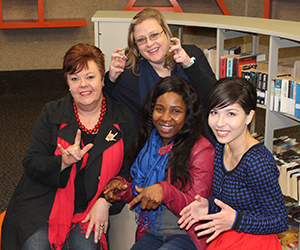Latest News Archive
Please select Category, Year, and then Month to display items
![]()
The Centre for Gender and Africa Studies (CGAS) and the UFS will host an Africa Day Webinar on the topic, Reflections on Africa amidst Covid-19, to be delivered by Prof. Sabelo J. Ndlovu-Gatsheni, renowned decolonial scholar. The title of his lecture is Revisiting the African idea of Africa during the moment of Covid-19 pandemic.
The crisis delivered by Coronavirus and Covid-19 invites Africans to rethink and even unthink the long-standing dependency on Europe and North America for help. What has dawned on Africa is the equally long-standing aspiration of self-reliance. What is emerging is a new African idea of Africa which takes responsibility for its own challenges. This new African idea of Africa challenges the Mudimbean idea of Africa embodied in the colonial library.
Thus this presentation reassesses how Africa has relied on its own historical experience, its own knowledge, and own people to confront Covid-19. What is of interest here is the proverbial wisdom of necessity being the source of invention. The presentation brings to the fore the decolonial turn as it gestures beyond crisis into post-Covid-19 world order. It ends with a call for decolonial love founded on new ethics of living together and new economies of care.
Bio of Prof Sabelo J. Ndlovu-Gatshen
Date: Tuesday, 26 May, 2020
Time: 14:00
Duration: 90 min max (45 min talk, 45 min Q&A)
The webinar can be accessed via one of the following links:
OR
Largest group on African continent introduced to Sign Language
2016-07-05
 The introduction of basic Sign Language
The introduction of basic Sign Language
as part of the UFS101 course was a great
success. From left are Susan Lombaard,
Annemarie le Roux, Tshisikhawe Dzivhani
(all from the Department of South African
Sign Language), and Lauren Oosthuizen
(UFS101). Photo: Leonie Bolleurs
As a result of a new initiative at the University of the Free State (UFS), the largest group of students on the African continent took part in a first-year seminar which included Sign Language.
A total of 5400 students on the Bloemfontein Campus and 1000 on Qwaqwa Campus were taught basic Sign Language by Susan Lombaard, Acting Head of the Department of South African Sign Language, and her team members, Tshisikhawe Dzivhani, Annemarie le Roux, and Nicolene de Klerk.
It forms part of the UFS101 module presented to all first-year students. The initiative, begun in the first semester of 2016, will form part of UFS101 in future and was met with an overwhelmingly positive response.
Three segments of course
Sign Language was taught in three segments and positioned as large-class learning experiences in the Callie Human Centre (Bloemfontein Campus) and the Nelson Mandela Hall (Qwaqwa Campus). Students were taught about deaf culture, Sign Language theory, as well as how to sign their names, exchange pleasantries, and have a basic conversation.
A valuable skill to have
“It (the Sign Language experience) was very interesting and helpful,” said one of the students. “It is important to have the ability to communicate with all sorts of people, and to be able to help them in a crisis”. According to another, it sparked an interest in Sign Language. “It is a skill I will continue to use and try to learn more from it,” said a third.
Lombaard – in collaboration with the UFS101 team – will be presenting a paper related to this achievement at the DeafNet Africa Conference in Johannesburg, from 26 to 30 September 2016.